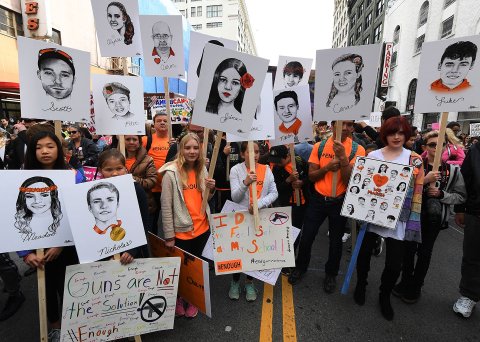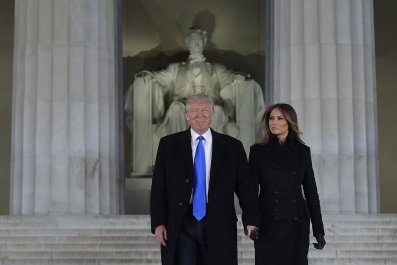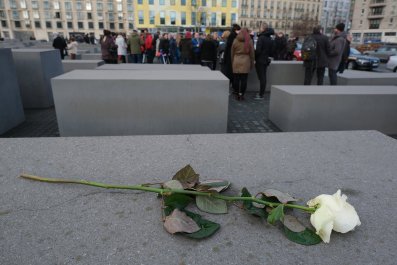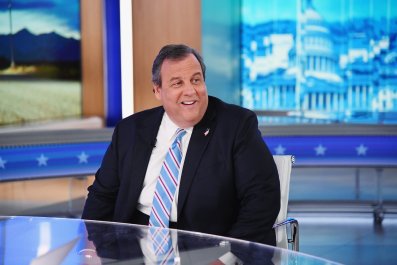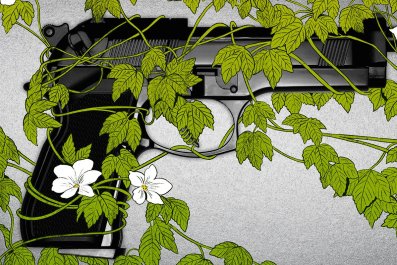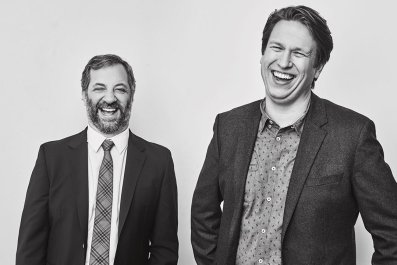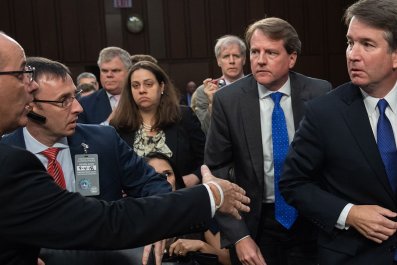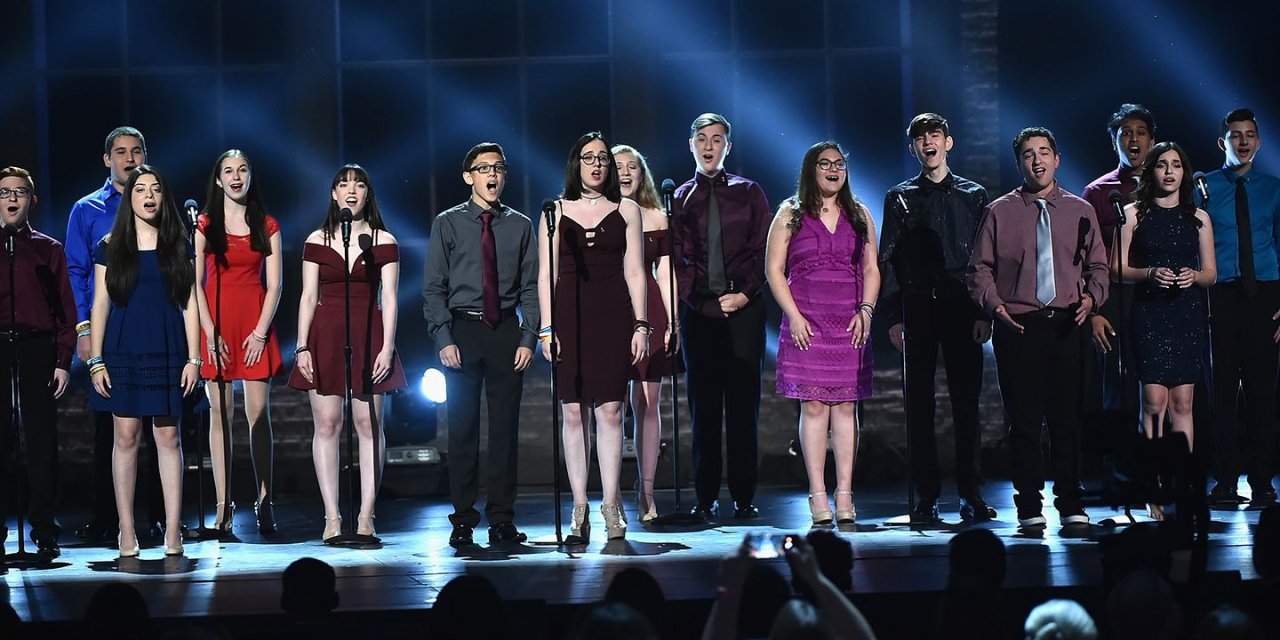
Fifteen years ago, Melody Herzfeld, the theater director at Marjory Stoneman Douglas High School, began an annual tradition of producing a show for local elementary school children. That's what her 65 students were rehearsing on the day 19-year-old Nikolas Cruz shot and killed 17 teenagers and staff members at the Parkland, Florida, school. Nearly one year after the massacre, Amy Schatz's 30-minute documentary Song of Parkland (premiering February 7 on HBO) tells the story of Herzfeld and her students on that day and in the months that followed.
The students—a mix of ninth- through 12th-graders—were rehearsing a musical based on the picture book Yo, Vikings! by Judy Schachner, and the film includes their decision to move forward with the production after the shooting, as well as the joyful response to their opening night on April 13, attended by elementary schools from the surrounding area. (At the 2018 Tony Awards in June, Herzfeld received the Excellence in Theatre Education Award, and her students performed the Rent hit "Seasons of Love" on the stage.)
In an interview with Newsweek, Herzfeld says that while time does heal, "there's nothing normal about this school right now." She couldn't be prouder of her students featured in the documentary, many of whom led the charge in political activism for gun control in the wake of the attack, including Never Again movement founding member Alex Wind. But Herzfeld also wants people to remember that "they're just kids." While they might be able to speak out, "with feeling and determination, to stand on cars and lead marches," she says, "they are so fragile inside."
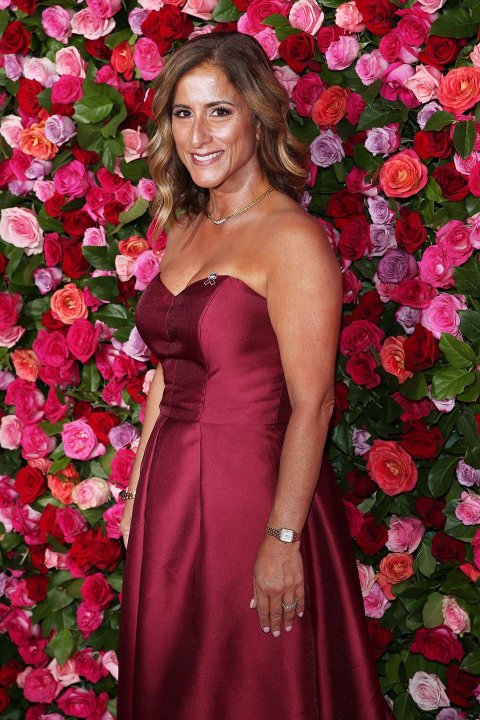
What do you remember from February 14, 2018?
It was a beautiful day. I remember kids walking around with 6-foot teddy bears, balloons and candy for Valentine's Day. One of my kids even had a delivery of cupcakes because it was his birthday. At the end of the day, we were having our rehearsal. We were going to finish up quickly because everybody wanted to get to their dinners and special parties. We'd had a fire drill that morning, so when the alarm went off, it seemed really odd. I'm a skeptic, so I was like, "OK, let's just finish our scene." We were right in the middle of a song.
We finished the scene, and the kids started filing across the grass, which takes you toward the 1200 Building [the site of the shooting]. First, I heard "Evacuate!" and then I heard "Code red, code red!" I was still in the doorway, and thank God I was. We heard what sounded like firecrackers going off. The shots were coming from 50 yards away, but it sounded like it was on the other side of the school. Then I saw the kids duck. They hightailed it back into the room. I found a few stragglers in one of the offices and one of the closets, and I told them to get up and go in the back room, so we can all be together.
One young man started to have a panic attack—he wanted to get out. I was like, "You're not going anywhere." We stayed in that dark, pitch-black room for a couple of hours, keeping our eyes on the crack of that closet, looking to see if anything was coming. My phone was dying, but I was able to get a couple of texts from a group chat of teachers I'm close with at school. Looking back, it's the not knowing that was scary.
What happened following that day?
We were out of school for two weeks, then came back for half days in the third week, a short week. We had a reunion day at the school on a Sunday, with all the parents and kids. The parents wanted to see where the kids were hidden. I felt obligated to tell the parents, from an adult's point of view, what happened that day because many of the kids hadn't spoken to their parents yet. They wouldn't talk about it. One kid wouldn't leave his house for days—he wouldn't leave his room. His parents couldn't get a word out of him.
So I retold the story, and I guess I did it OK because one of the boys goes, "You said it exactly as it happened, Herzfeld. That's exactly what we remembered. The only thing you forgot is that you saved our lives. You told us to wait, to not leave the room. If we'd left, we would have been out where all the gunfire was." That killed me. For them to think of something like that—my little delay made a difference.
Soon after, Schatz approached you about the documentary. What made you want to participate?
I got a lot of emails, a lot of requests. What was interesting to me is that Amy introduced herself as somebody who does documentaries about children, for children. That was meaningful. And I did feel it was important for people to know who these kids were—that they're really good kids with good hearts; a lot of them were part of the March for Our Lives. The documentary shows their resilience, and it shows they are real people.
Why did you and your students decide to go ahead with the Yo, Vikings! production?
The Florida State Thespians Festival and Competition was coming up, and for many of the students it was going to be their last chance to compete. I said, "If you want to do this, I will continue to lead you, to finish what we started." They all raised their hands and said, "Yep." Then I said, "And, if you want to go to state, we'll go." And they all cheered. They were so happy. I think they were more worried that life wasn't going to continue as [they'd planned]. They needed that.
A year later, are things beginning to approach normal?
I don't even know how to define normal. I don't know what the new normal is. It's so unsettled and so palpable and tribal. It's really day to day. When we have great days, it's great. When we have crappy days, it's horrible. You just kind of improvise, with the kids, with the staff, with fellow teachers, with parents—it's all improvisation right now.
Your crappy days are about self-existence: Why am I still here? Why is someone else gone? Your crappy days are when your best friend at school texts you, "This is not going to be a good day. Can you come to me?" And you drop everything to just give them a hug or talk in the hallway. The crappy days are when you see a kid, and the littlest thing, something that's so insignificant, throws them off.
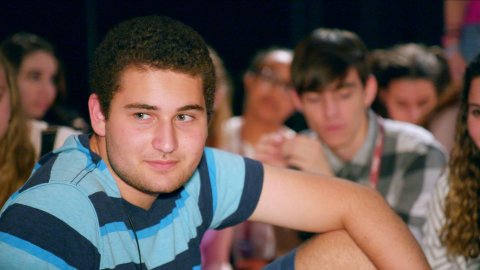
What is Stoneman Douglas doing for the one-year anniversary?
There's no school that day, but students can sign up to do activities on campus. If somebody wanted to do a day of service or do two hours of service, they can work on Marjory's Garden or work with Feed Our First Responders with Church by the Glades and Feeding Our Starving Children with Coastal Community Church. There are also many service and memorial happenings going on in both Coral Springs and Parkland—half of our students are from Coral Springs, which many people don't realize. Some are doing activities away from the school.
I asked my core group, "Do you want to meet together at some point? I will make myself available to you." They just shut it down. One person said, "I don't really want to talk about it," and then everyone said, "Yeah, let's not talk about it."
Most of the things my kids are partaking in offer some distraction—outside with their family, maybe being in smaller groups of people. Me? I feel the need to be here on campus. Go figure that one out, but there's a lot of us like that. This is something that has to be talked about.
Where do you stand on the issue of gun control and the activism of your students?
I have to say that the greater problem is with humanity, rather than just access to the guns. I don't know if I'm saying it right, but I feel we have to take care of people. We have to raise our children to understand what responsibilities are. When the gun gets into the hand of a bad guy, bad things happen, and that's something that could easily be prevented. That is without question. But can we eradicate guns forever? That's just not going to happen. You can't change culture. You can't change where someone comes from, what they have to deal with on the street where they live or the background they come from.
As for my students who have [become activists], I am so proud of them. So proud.
The head of the National Rifle Association, Wayne LaPierre, suggested arming teachers with guns. What's your opinion on that?
I wouldn't feel comfortable with a gun. I'm here to teach—that's what I signed up for. They don't pay me enough to do something like that—to be responsible with lives, [to be responsible for] taking a life. Teachers and caregivers look after the most vulnerable people in our society: our elderly, our mentally impaired and our children. Yet you treat us like we are not professionals, like we are not worthy. And now we are expected to put our lives on the line to protect innocents? That's crazy.
What show are you and your students working on right now?
When everything happened, the Broadway community really wrapped us in a cloak. They came to help us in our way of healing, which was through song and performance. They did "From Broadway With Love" [a benefit concert performed by stars including Matthew Morrison and Rachel Bloom] at the BB&T Center [in Sunrise, Florida]. That included a songwriting initiative, where the kids wrote songs with songwriters from Broadway and performed them.
The co-director of that show, Michael Unger, was very involved with the Sandy Hook community in Newtown [Connecticut, where 20 children were killed in a shooting in 2012]. He [and composer Eric Svejcar] gifted to the community a musical called A Rockin' Midsummer Night's Dream. After we got to know each other, he happened to say, "So what are you guys doing next year?" I said, "I don't know." He said, "We'd love to give you A Rockin' Midsummer," which was so generous. We're in rehearsal for that now, and it opens on March 7th.
